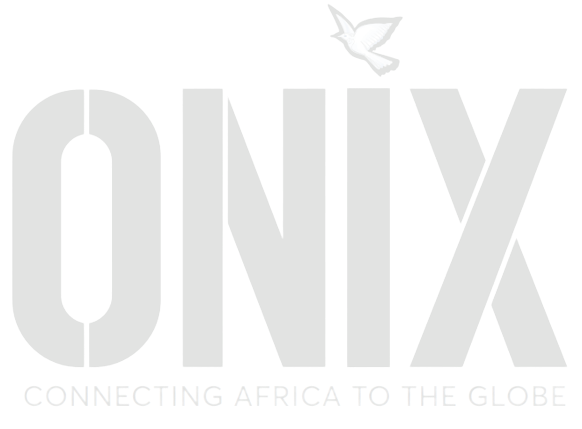From a standing start in the mid -1990’s to over a billion users over two decades later – Africa’s mobile phone revolution has been spectacular and one of the greatest growth stories of the last hundred years.
This happened despite Africa consisting of 54 different countries. The success was not a result of harmonised regulations or trade agreements or cooperation at the African Union. The growth was driven by the consumer and what he or she wanted. Humans are a social species and the desire to communicate is what drove the demand for mobile telephony. As the mobile ecosystem grew more advanced the need to engage evolved from voice to social media and other messaging applications.

The other driver of mobile growth was reduction in calling costs, cheap handsets and flexibility in payment (pay as you go). Voice became commoditised and price became the sole purchasing factor. Today the cost of data and the availability of service (coverage) are the key determinants for adoption.
The hunger for solutions to everyday challenges led to the innovation of M-Pesa. The lack of formal banking options drove the development of a simple and effective payments system (on first generation mobile devices) that now enables the vast majority of financial transactions in Kenya.

In the first decade of the mobile phone revolution the data requirements of the telco infrastructure were relatively low but as the GSM system evolved from 2G into 3G and more recently to 4G so the bandwidth of the telco infrastructure has come under pressure.
Much investment has gone into the fibre optic cables underpinning the telco networks (both submarine and terrestrial) which has allowed the delivery of bandwidth hungry content such as video. The advent of cheaper smartphones has also driven a virtuous cycle of demand by consumers seeking a greater variety of content both for entertainment as well as work purposes.
Africa now stands on the brink of a new era. This will be driven by the proliferation of broadband connectivity and internet access. There are many benefits that will accrue as Africa starts to capitalise on better and cheaper connectivity. These include: improved education and health outcomes, more efficient government, better farming methods and access to affordable and relevant financial services.
Will this be a shortcut to prosperity? Will Africa be able to leapfrog industrialisation – which is considered to be a necessary pre-condition to ‘development’? Can Africa become a service economy without industrial development (so called smoke-stack industries.) ?
The short answer is no. The digital infrastructure (and associated services) already in place, and still being developed, is not sufficient to transform the continent. There is a requirement for fixed direct investment (FDI) in fundamental economic building blocks like: power infrastructure (especially renewable), roads, railways, bridges, harbours, airports, factories, schools, hospitals and houses. The African Development bank says Africa needs over $90bn invested annually in FDI to meet its infrastructure demands.
Perhaps Africa’s industrialisation will be more digital than smokestack with 3-D printing, high tech manufacturing, digital agriculture, renewable energy, drones etc leading the way. An important pre-condition to any of this is the urgent need for improved educational outcomes so that the burgeoning work force (Africa’s demographic dividend) is equipped with the requisite skills.
Regulation will play a role in ensuring that there is reduced market dominance by big players (such as MTN in Nigeria and Ghana) and that fair competition leads to the optimum economic outcome for each country. For example, Regulators should ensure that Telco’s and ISPs are required to deliver connectivity to underserved rural communities where half of Africa’s population resides. Affordable broadband access in remote areas will drive economic activity, improve agricultural practises , support supply chains and ensure timeous payments and of course help deliver relevant education, e-health and e-Government. Making access free through an advertising model may well be key to widespread adoption.
Africans are increasingly consuming local content – be it movies, music or books. This will drive the local media industry (recording and publishing) obviating the need for African artists to fly to LA, London or Paris to record. Demand for local language content is ensuring that Google expands its language base to include more African languages, and there is also a realisation of the importance of mother tongue instruction in the formative years of education.
Corporations, SOE’s and Government departments in Africa have had their outsourcing plans accelerated by Covid which will see more and more IT departments move their servers into data centres and work-loads migrate to the Cloud.
The Hyperscalers have started to consider Africa seriously. Twitter has announced the establishment of an African headquarters (in Accra), which is where Google is also establishing an Artificial Intelligence lab. AWS is building a regional node in Cape Town and Facebook is driving the 2Africa consortium to land its cable in West Africa to serve its rapidly growing African business. Microsoft Azure is already well established across the continent.
The African data centre market is starting to expand. This critical infrastructure is essential to Africa delivering on the promise of the post mobile digital wave. Demand will outstrip supply for the foreseeable future as the creation and consumption of ‘data’ grows exponentially. Africa can and must ‘industrialise’ to deliver on the promise of such a well-endowed continent with a large and diverse workforce. The digital economy will lead the way.







